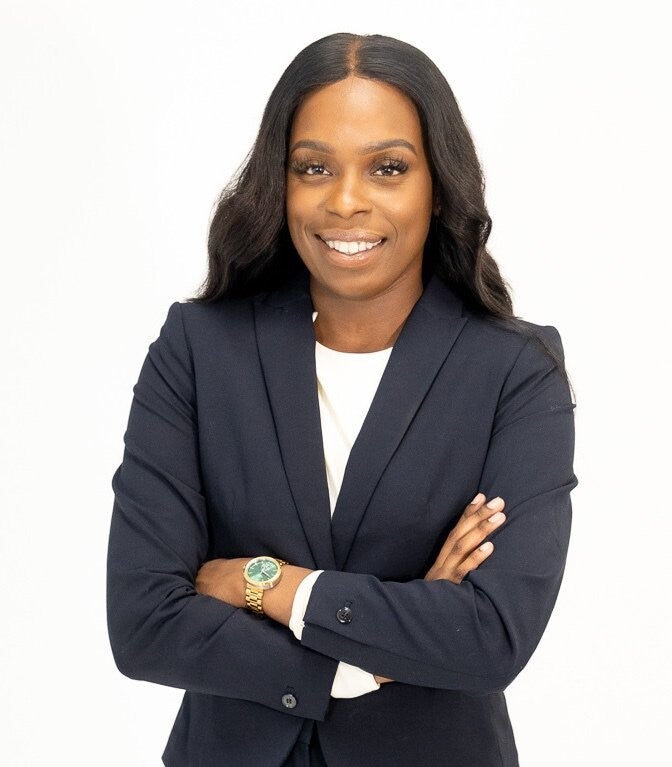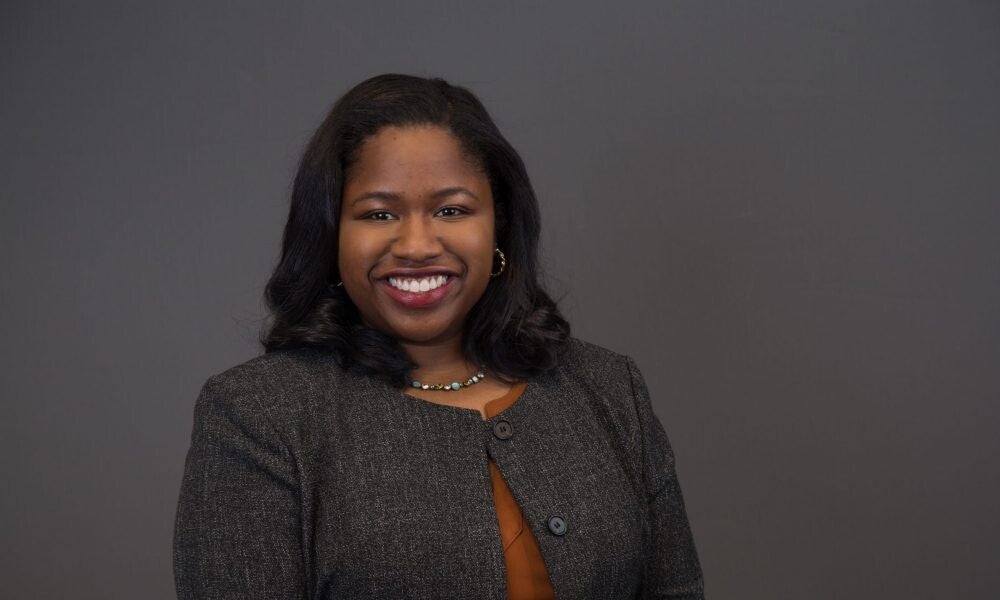Interviewees

Clarence "Trey" Roby
Criminal Defense Attorney
Clarence "Trey" Roby is a Howard & Tulane Law grad, located in New Orleans, Louisiana, currently a criminal defense attorney under his father, Clarence Roby.

Ja'Mesha Morgan
Managing Attorney
Ja’Mesha Morgan is a Howard/USC Grad. She’s currently the Managing Attorney at JL Morgan Law, her own firm, representing plaintiffs in California and Texas.

Riane Sharp
Corporate Counsel at Starbucks
Riane Sharpe is a Howard & UGA Law Grad, located in Atlanta, Georgia, currently Corporate Counsel at Starbucks.

Clarence "Trey" Roby
Lawyer, New Orleans)
Q1. How has technology impacted your profession/field and educational experience?
A: “I use it as a means of cross-checking the work that I’ve already done to ensure I’ve analyzed things accordingly. I also use it for case research if there’s a question of law I need to address. It streamlines the process and makes things more one-to-one.”
Q2. Are there any specific software programs or digital tools that are indispensable to your work?
A: “Claude AI, Westlaw, and LexisNexis. The last two are databases attorneys use to do case research and look up laws across jurisdictions. Claude AI is essentially ChatGPT for attorneys. I use it to support my practice.”
Q3. What role does AI currently play in your field, and how do you see its influence growing in the future?
A: “AI is great if you know how to use it, but it’s dismantling administrative and paralegal roles. It helps lawyers digest information quickly, but it competes with assistants and paralegals. Some firms misuse it in Alabama, one firm filed a motion full of fake cases from an AI platform, and now the state Supreme Court is questioning if the attorneys involved can continue practicing. It shows AI can be a helpful tool, but it can’t replace real legal work.”
Q4. What shifts or new professions do you foresee emerging in law due to AI?
A: “I don’t see many new opportunities. If anything, AI could reduce opportunities in administrative roles and make the law more exclusive. Law school admissions are tightening, tuition is rising, and the bar exam may get harder.”
Q5. Do you think minoring in creative writing would benefit me when I attend law school?
A: “Yes, it will aid your ability to write as an attorney. Law school teaches you a specific style, but creative writing builds strong foundations early on.”
Q6. If you could give your freshman-in-college self one piece of advice, what would it be?
A: “Ask smart questions. Recognize that being a lawyer is less about arguing and more about writing. Read often, fall in love with reading. Most of law is reading and writing — only about 20–25% is arguing. Some of the best lawyers I know are the ones who can write.”
Q7. General Information (for comparison chart):
-
Company: Private law practice
-
Size: 3 employees
-
Years in Operation: 40 years
-
Primary Tools: Westlaw, LexisNexis, Claude AI
-
Tech Changes Expected: More AI in research, automation in case management, higher barriers to entry in law
-
Approx. Salary: $125,000
-
Location: New Orleans

Ja'Mesha Morgan
Q1. How has technology impacted your profession/field and educational experience?
A: “Technology has allowed the legal profession to become more accessible, save time, and advocate for clients more efficiently. Remote court appearances have overcome the antiquated system of always being in person, allowing me to practice across states without added cost to clients. Lexis Nexis and ChatGPT provide quick legal research that enhances case strategy. Auto-transcription has also made court reporting and depositions more cost-effective for Plaintiff-side attorneys.”
Q2. Are there any specific software programs or digital tools that are indispensable to your work?
A: “Lexis Nexis, eFile technology, Zoom and other video conference tools for remote court appearances, and ChatGPT.”
Q3. What role does AI currently play in your field, and how do you see its influence growing in the future?
A: “We use AI to draft standard forms, evaluate bulk documents and contracts, aid in intake and client onboarding, summarize research and strategy, and even assist in marketing. AI helps vet and reorganize case law, fact patterns, and case values. These tools make mundane tasks less time-consuming.”
Q4. What shifts or new professions do you foresee emerging in law due to AI?
A: “I anticipate more non-lawyers will enter the space of drafting legal documents and contracts. We’ll see more freelance paralegals and legal writers working across firms thanks to tech. Political advocacy and legislation will also grow, as technology allows quicker evaluation of legal gaps and supporting statistics. Overall, I see the legal profession becoming less arduous, freeing attorneys to focus on substantive legal analysis.”
Q5. Do you think minoring in creative writing would benefit me when I attend law school?
A: “Yes, absolutely. Litigation is the art of persuasion. Being able to present facts and arguments in a compelling way benefits you with judges, juries, and even opposing counsel.”
Q6. If you could give your freshman-in-college self one piece of advice, what would it be?
A: “Be confident in your path early on, and don’t underestimate how much writing will shape your career. The more you develop your reading and writing skills now, the more prepared you’ll be for law school.”
Q7. General Information (for comparison chart):
-
Company/Organization name: JL Morgan Law PLLC
-
Size: Solo firm with contracted paralegals and legal writers (5 total)
-
Years in operation: 4
-
Primary technological tools used: Filevine (case management), Lexis Nexis (research), ChatGPT, Clio (intake & onboarding), Lexamica (client referrals)
-
Tech changes expected (5–10 years): Expanded use of AI for research, automation in case management, and growth of virtual courtrooms
-
Approximate salary/compensation: Pays self ~$130,000 annually; firm projected ~$350,000 net income this year
-
Geographic location: Dallas, TX (practices across California and Texas)

Riane Sharp
Q1. How has technology impacted your profession/field and educational experience?
A: “For attorneys, technology has made legal research more efficient and has streamlined case management. In the educational sphere, law students now have access to a vast array of digital resources and new learning tools.”
Q2. Are there any specific software programs or digital tools that are indispensable to your work?
A: “Wolters Kluwer and Passport.”
Q3. What role does AI currently play in your field, and how do you see its influence growing in the future?
A: “AI's current applications in the legal sector primarily focus on efficiency and data analysis, reducing the time spent on mundane, repetitive tasks. AI can be used for legal research, document review and analysis, contract drafting and analysis, and predictive analysis.”
Q4. What shifts or new professions do you foresee emerging in law due to AI?
A: “A new field of law is emerging: AI. This new practice area will create great new career opportunities for current and future lawyers. Lawyers will have to become savvy in leveraging AI while preserving confidential information. Additionally, certain basic, detail-oriented tasks may be completed via AI, allowing lawyers to focus on more substantive aspects of their work that cannot be done by machines.”
Q5. Do you think minoring in creative writing would benefit me when I attend law school?
A: “Yes and no. Being comfortable writing and making creative arguments would be a transferable skill; however, legal writing is different from creative writing, so there’s no direct relevance. You can major in anything and go to law school, so if creative writing is a passion, minor in that. If not, don’t do it just because you think it may benefit you in law school.”
Q6. If you could give your freshman-in-college self one piece of advice, what would it be?
A: “Write down your goals and determine your why now. When school gets tough and you’re discouraged, reference your goals and remember your why to help you refocus.”
Q7. General Information (for comparison chart):
-
Company/Organization name: Starbucks Coffee Company
-
Size: 10,000+ employees
-
Years in operation: 53 years
-
Primary technological tools used: Microsoft Suite, Wolters Kluwer, Passport
-
Tech changes expected (5–10 years): Yes, to all proposed options (AI tools for legal research, automation in case management, and virtual courtrooms)
-
Approximate salary/compensation: [Not provided]
-
Geographic location: Metro Atlanta
Create Your Own Website With Webador